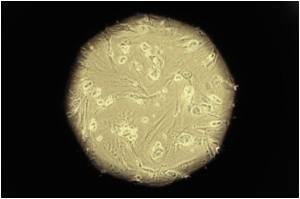A new study has said that US researchers have found a new, remarkably efficient way to generate human stem cells that could provide an alternative to using embryonic stem cells

The researchers did not go the usual route of permanently altering the genome to obtain protein factors that reprogram adult cells into human-induced pluripotent stem cells, or iPSCs.
Instead, they developed synthetic modified messenger RNA molecules -- which they called modified RNAs -- that encoded the proteins, but did not integrate into the cell?s DNA.
They found, to their surprise, that repeated administration of the modified RNAs "resulted in robust expression of the reprogramming proteins in mature skin cells that were then converted to iPSCs with startling efficiency," the study says.
"We weren?t really expecting the modified RNAs to work so effectively, but the reprogramming efficiencies we observed with our approach were very high," Rossi said.
Currently, clinical application of iPSCs is hampered by, among others, inefficient means of generating pluripotent stem cells.
Advertisement
In the study, RNA-induced iPSCs with an RNA associated with muscle cell development caused cells to differentiate into muscle cells. Differentiation was simple, efficient and "without the immediate risk of inducing genetic mutations," the study says.
Advertisement
"We believe that our approach has the potential to become a major and perhaps even central enabling technology for cell-based therapies," he said.
The new method was a significant leap forward in reprogramming human adult cells, said Harvard Stem Cell Institute co-director Doug Melton, adding that the institute will "immediately begin using the new method to make patient and disease-specific induced pluripotent stem cells."
"This work by Derrick Rossi and his colleagues solves one of the major challenges we face in trying to use a patient's own cells to treat their disease," said Melton, who was not involved in the study.
"At the HSCI we are turning our entire iPS core to using this method," he said.
The study was published online in the Cell Press publication, Cell Stem Cell.
Source-AFP











